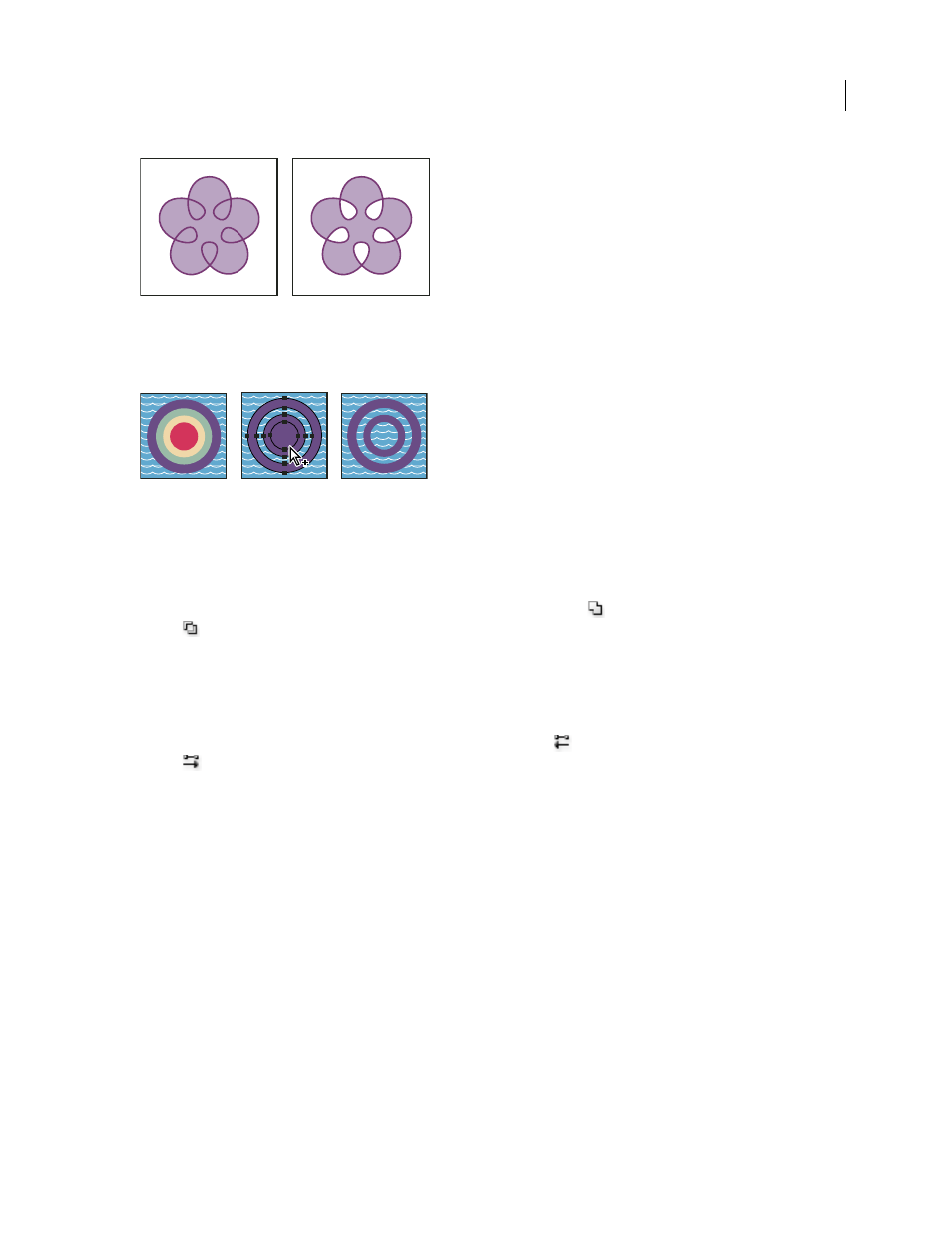Return a compound path to its original components, Cutting and dividing objects – Adobe Illustrator CS3 User Manual
Page 241

ILLUSTRATOR CS3
User Guide
235
Self-intersecting path with Use Non-Zero Winding Fill Rule (left) compared with Use Even-Odd Fill Rule (right)
When you create a nonzero winding compound path, you can specify whether overlapping paths appear with holes
or are filled by clicking a Reverse Path Direction button in the Attributes panel.
Fill rules
A. Four circular paths B. Circular paths selected, converted into compound path C. Reverse Path Direction applied to innermost path
Change the fill rule for a compound path
1
Select the compound path using the Selection tool or Layers panel.
2
In the Attributes panel, click the Use Non-Zero Winding Fill Rule button
or the Use Even-Odd Fill Rule
button
.
Change a hole in a compound path to a filled area
1
Make sure that the compound path uses the nonzero winding fill rule.
2
With the Direct Selection tool, select the part of the compound path to reverse. Do
not select the entire compound path.
3
In the Attributes panel, click the Reverse Path Direction Off button
or the Reverse Path Direction On
button
.
Return a compound path to its original components
1
Select the compound path using the Selection tool or Layers panel.
2
Choose Object > Compound Path
>
Release.
Cutting and dividing objects
Methods for cutting, dividing, and trimming objects
Illustrator provides the following methods to cut, divide, and trim objects:
Divide Objects Below command
Acts as a cookie cutter or stencil, using a selected object to cut through other
objects, discarding the original selection. To use this command, choose Object > Path
> Divide Objects Below.
B
C
A
